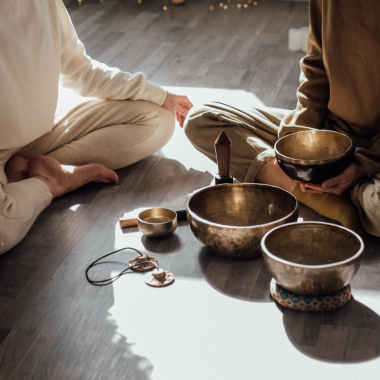written by Julstory editors
Decoding the Mystery: What are Spiritual Practices?
Spiritual practices – a phrase often heard, but what does it truly entail? Spiritual practices refer to activities or experiences that are undertaken to cultivate a sense of connection to the divine, the universe, or one’s own inner self. These practices can vary significantly across different cultures and personal beliefs. They often serve to provide a sense of purpose, inner peace, and broader understanding of life and existence.
Diving into the Spiritual Spectrum: Spiritual Practices Examples
Spirituality, being highly personal and diverse, encompasses a wide array of practices. From common techniques such as meditation and yoga to more specialized methods like Reiki, each offers unique paths towards spiritual development. Let’s explore further spiritual practices examples.
- Yoga: A Union of Body, Mind, and Spirit
In addressing the question, Is yoga a spiritual practice? The answer is a resounding yes. Yoga, originating from ancient India, represents a comprehensive system encompassing physical postures, ethical principles, breathwork, and meditation. It’s a path towards unifying body, mind, and spirit, offering practitioners a route to inner peace and self-discovery.
- Reiki: Channeling Universal Energy
In our journey across spiritual landscapes, we encounter the Reiki spiritual practice. Originating in Japan, Reiki is a healing modality that involves channeling life force energy to promote wellness, reduce stress, and support physical and emotional healing. Practitioners often describe experiences of profound calm and serenity during and after Reiki sessions.
- Meditation and Mindfulness: The Art of Presence
Among the most recognized spiritual practices are meditation and mindfulness. These techniques aim to foster a heightened state of awareness and focused attention. As a daily spiritual practice, meditation encourages practitioners to create a sanctuary of calm in their lives, cultivating clarity, peace, and an in-depth understanding of the self.
- Pranayama: Breathwork for Balance
Pranayama, often integrated into yoga practices, is another spiritual discipline centered around breath control. ‘Prana’ translates to ‘life force,’ and ‘ayama’ to ‘extension,’ encapsulating the practice’s goal—enhancing and balancing the life force within us. Regular practice can lead to increased energy, reduced stress, and improved mental clarity.
- Tai Chi: Movement Meditation
Tai Chi, a Chinese martial art often practiced for health and longevity, can also serve as a potent spiritual practice. Often described as ‘meditation in motion,’ it encourages flowing movements, deep breathing, and a focused mind, promoting harmony between the body and spirit.
- Chanting and Mantras: The Power of Sound
Chanting or repeating mantras, potent sounds, or phrases, is a spiritual practice common to many traditions. This practice harnesses the power of vibration and intention to shift consciousness and promote healing and transformation.
- Spiritual Reading and Study: Nourishment for the Mind
Last but not least, spiritual reading or studying sacred texts can serve as a beneficial spiritual practice. This could involve exploring the texts of major world religions, studying the works of spiritual teachers, or delving into philosophical explorations of life and existence.
As we can see, spiritual practices come in various forms, each offering unique pathways to personal growth, peace, and understanding. Remember, the most effective practice is often the one that resonates most deeply with you, aligning with your beliefs, lifestyle, and spiritual aspirations.
The Starting Point: Spiritual Practices for Beginners
For those just beginning their spiritual journey, understanding how to practice spirituality can be a daunting task. But worry not, as we provide a roadmap for spiritual practices for beginners.
- Reflection: Begin by reflecting on your personal beliefs, values, and areas of life you feel need spiritual nurturing.
- Exploration: Next, explore various practices. This might include the aforementioned practices like yoga or Reiki or could extend to others like journaling, walking in nature, or engaging in acts of service.
- Consistency: Try to incorporate your chosen spiritual practice into your routine. A daily spiritual practice is often more beneficial than sporadic deep dives.
- Patience: It’s essential to be patient with your progress. Spirituality is not about instant enlightenment but rather a journey of personal growth and understanding.
- Community: Consider joining a group or finding a mentor who can guide you in your practice. The support of a community can be invaluable in deepening your spiritual experience.
Cultivating a Spiritual Practice
Whether it’s through meditation, Reiki spiritual practice, yoga, or any other spiritual activities, developing a daily spiritual practice can offer immense benefits. It not only serves as a tool for managing stress and finding inner peace but can also lead to profound insights and transformations. As you venture into the realm of spirituality, remember that the journey is deeply personal and varies from person to person. There is no right or wrong way to approach it; what matters most is sincerity, openness, and commitment to the process.








